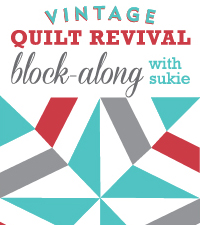I used to read mostly fiction, but lately I have found I read a good sprinkling of non-fiction.
The Emperor of all Maladies a biography of cancer- by Siddhartha Mukherjee
This was a brilliant book. Like many of you I have lost loved ones to cancer and several family members are currently survivors of surgery, chemo and radiation. It’s paragraphs like this that brought tears to my eyes.
But the story of leukemia—the story of cancer—isn’t the story of doctors who struggle and survive moving from one institution to another. It is the story of patients who struggle and survive, moving from one embankment of illness to another. Resilience, inventiveness, and survivorship—qualities often ascribed to great physicians—are reflected qualities, emanating first from those who struggle with illness and only then mirrored by those who treat them. If the history of medicine is told through the stories of doctors, it is because their contributions stand in place of the more substantive heroism of their patients.
Above all it is a book of hope. I recommend, however, there is a lot of technical information about the behavior of cancer in DNA. It took me over a month to read it, but I consider it time well spent
Blackbird by Jennifer Lauck
This book was like many other memoirs of an awful childhood, raw and poingnant. The author was the daughter of a teen mother who was forced to give her up for adoption in 1963. The situation she ended up in left her homeless and rootless at the age of 10. I've probably told you more than you need to know. It's a quick read.
Found by Jennifer Lauck
In this continuation of her Blackbird memoir, the author writes about coming to terms with the losses she experienced as a child and the search for her first mother who gave her up as an infant. The book will be compelling for those in the birth mother, adoptee, adoptive parents triangle, but the rest of us can only appreciate her struggles on a surface level.
Word Freak by Stephen Fatsis
I confess, I'm borderline addicted to the smart phone/ipad/itouch app, Words with Friends. The author wrote this book several years ago after he took a leave of absence from his job with the Wall Street Journal to immerse himself in the world of Scrabble tournaments. I don't think I'll ever memorize the hundreds of acceptable 2 and 3 word entries or the acceptable entries with Q and no U, but I am finding that QI and QAT are helpful to know. Don't look for me on the scrabble tournament circuit, but if you too are addicted to WWF, send me your UN, and I'll send you a bubble. See, I'm already deep into the lingo.
Parrot and Olivier—by Peter Carey
Some books just have too many words. This one included. It had a lot of references to French and English history and literature. The author assumed you knew a lot, and I found myself doing a internet research such as a time-line search for the return to the French monarchy after the Napoleonic era. I found the two narrator style to be confusing as they were often commenting on things that had not yet happened, or were filling in the gaps of previous narrative. It was fiction, but not an easy book to read. Skip the book and read the summary on Amazon, and you will know everything you need to know to converse brilliantly.
Tuesday, April 12, 2011
Subscribe to:
Comments (Atom)




